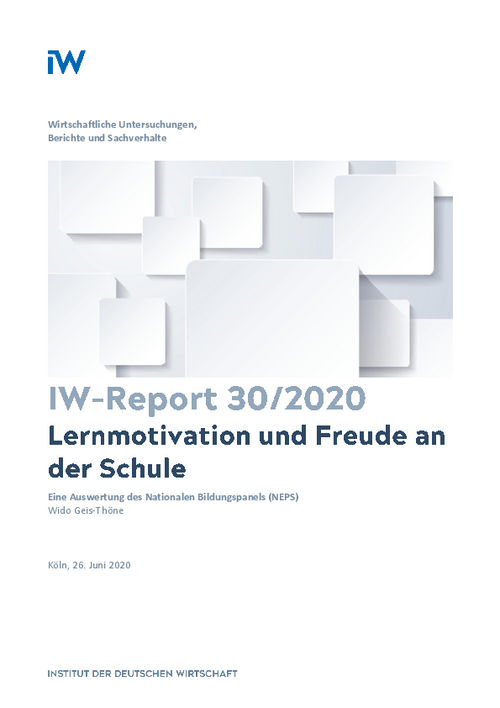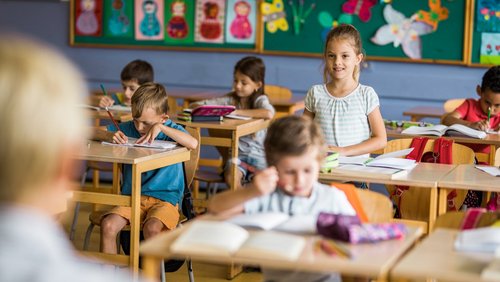With the sharp reduction in classroom teaching in the context of the Corona pandemic, students' own initiative in practising the school material has become much more important for their competence development.

Evaluation of the National Education Panel (NEPS): Motivation to Learn and Fun at School
IW Report

With the sharp reduction in classroom teaching in the context of the Corona pandemic, students' own initiative in practising the school material has become much more important for their competence development.
For this reason, targeted efforts must be made to ensure that the joy of learning of children is not only maintained in the current situation, but also further strengthened. At normal times, the situation is favourable, as an evaluation of the National Education Panel (NEPS) shows. Pupils were asked here to rate their motivation to learn by means of four different statements. Building a continuous indicator with a value range from 0 to 1 on these statements, the average for sixth-graders is 0.55. The value for grammar school pupils is 0.57, which is slightly higher than for pupils from other secondary schools (0.52). In the same way, the joy of schooling recorded on the basis of three statements is 0.64 for all sixth-graders, 0.65 for grammar school pupils and 0.62 for pupils from other secondary schools.
Motivation to learn and joy of schooling are strongly related to school success, although the relation is far from being deterministic. For example, the average grade in German and mathematics is about three-quarters of a grade level higher at the maximum value for learning motivation than at the minimum level. In the case of joy of schooling, the difference is almost two thirds of a grade level. It should be noted that the chains of effects here run in both directions and an impulse in learning motivation or joy of schooling can under certain circumstances also trigger a ping-pong effect. If one looks at the connections with various aspects of the socioeconomic background of the pupils, the migration background stands out. If it is present, the indicator values for motivation to learn and joy of schooling are 0.09 or 9 percentage points higher among sixth-graders under otherwise identical conditions. In contrast, they are significantly lower for children of single parents and parents with an educationally disadvantaged home.
In order to increase the pupils' joy of learning, lessons should be designed to be as motivating as possible and the pupils should be made aware of the importance of the knowledge and skills for their later life. Moreover, school social work should become active if serious motivation deficits occur. It is very unfavourable both for the motivation to learn and the enjoyment of school, as well as for many other aspects of the learning process, if most of the teaching takes place in the parents' homes. Therefore, schools should return to regular teaching as soon as possible.
[Translate to Englisch:]

Wido Geis-Thöne: Lernmotivation und Freude an der Schule – Eine Auswertung des Nationalen Bildungspanels (NEPS)
IW Report

More on the topic

Teaching hours at elementary school country comparison
Young people's educational paths are very much predetermined during their primary school years. On the one hand, the basic skills of reading, writing and maths are acquired, and, on the other hand, the joint learning of all children ends with the transition to ...
IW
Equality of Educational Opportunity: A Challenge for the German Education System
Germany has been making good progress towards achieving equality of opportunity in its education system. Latterly, however, it has become clear that the correlation between socio-economic background and educational success is again becoming more pronounced, a ...
IW